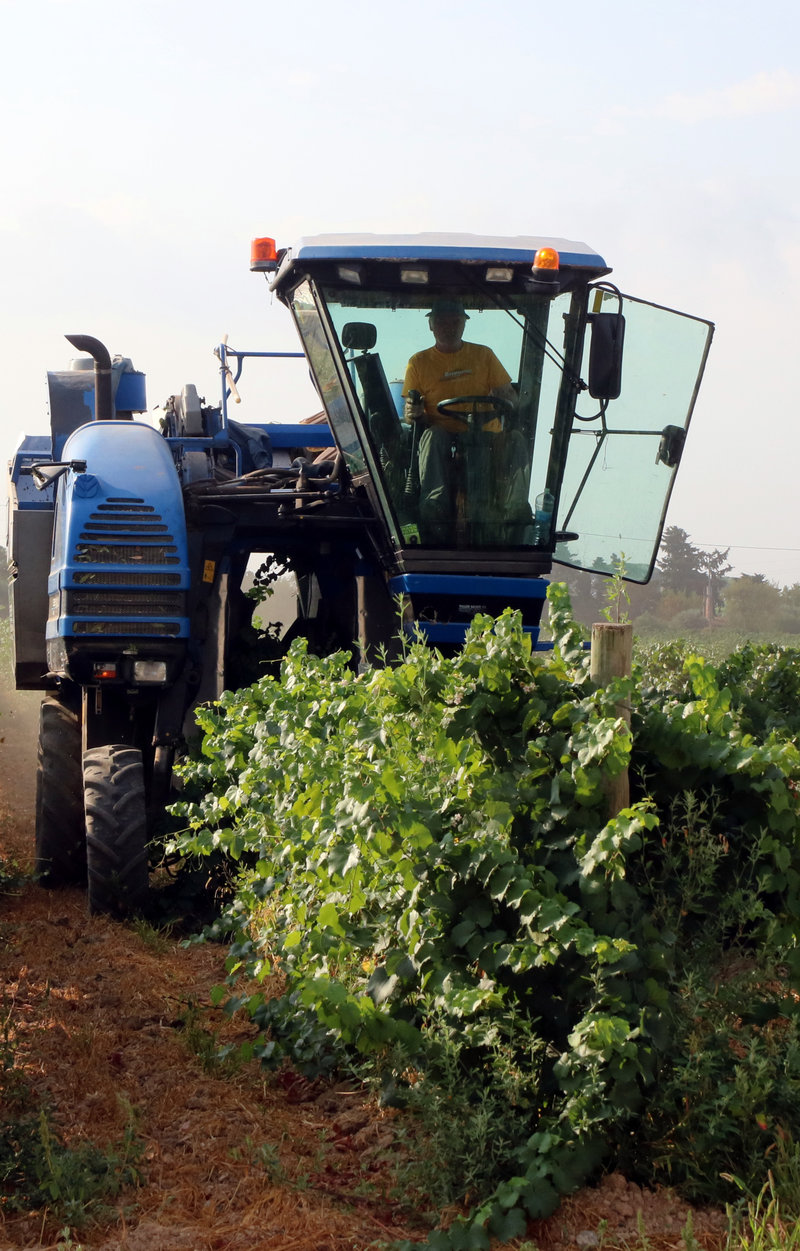THE LAST WORD
Sound of silence
It’s early morning as I sit to write this and outside my window a tractor engine has been chugging away for about 15 minutes. The grape harvest is in full swing and so there’s plenty of activity where I live in Alt Penedès. The tractor eventually moves away with a roar that gradually tapers off as it lumbers towards the vineyards. Silence descends over the village once more. But not for long, as almost immediately the ripping sound of a metal shutter can be heard nearby, followed by another tractor engine sputtering into life. While the farmer prepares for the working day, he leaves his tractor rumbling, presumably to warm the engine up. After 10 minutes that tractor too goes roaring off in search of grapes. For a few moments all is quiet again in the village. But then, a chainsaw begins whirring, its noise rising to a high-pitched screech each time it bites into a log. Meanwhile, my neighbour, who repairs cars for extra cash, gets going with a series of metallic thuds punctuated by the clatter of a loose exhaust as he attempts to bring the vehicle he is working on back to life.
When I tell people that most of the time I work from home in a small village of a dozen or so houses surrounded by vineyards and woods, they often react by telling me how lucky I am, imagining what a delight it must be to work amid such peace and quiet. Well, we all know that the grass is always greener, and I envy them their shops and services within easy walking distance. Not that I’m complaining; I like my working conditions well enough, and tractors and chainsaws aside, it’s true that I probably get the benefit of ’peace and quiet’ more than most.
In fact, I got to thinking about this while reading the interview with a marine biologist we have in this issue on pages 18 and 19. Miquel Ventura explains how sea creatures have benefitted from the drop in human activity during the lockdown. The improvement in the lives of these creatures has not just been due to fewer people, and the waste and pollution they inevitably bring with them, invading their environment, which is something I would have expected, but because of the lack of noise normally produced by human activity. He paints a picture in which under normal circumstances, marine life is bombarded by noise all the time, which is particularly pernicious as many of these creatures are very sensitive to it.
Throughout this crisis, an ongoing theme has been what effect the change in pace in our working and personal lives might have on us as individuals and as a society. We saw how during the lockdown the massive reduction in commuting improved air quality, for example. But what about noise?
I remember the first times I ventured into town when the lockdown got underway. There was a strange tension in the air, which is to be expected at such a time of uncertainty, but I was also struck by how quiet and peaceful the streets were. Lowering the pace of life a few notches also has its good side. I’m probably not the only one who has enjoyed far more ’quiet moments’ in recent months than could have been imagined before the virus struck. Hopefully we can begin moving beyond coronavirus soon and restore some normality to our lives, but hopefully we can also come out the other side with a greater appreciation for those good things in life, such as peace and quiet, that we often denied ourselves in the pre-Covid era.


